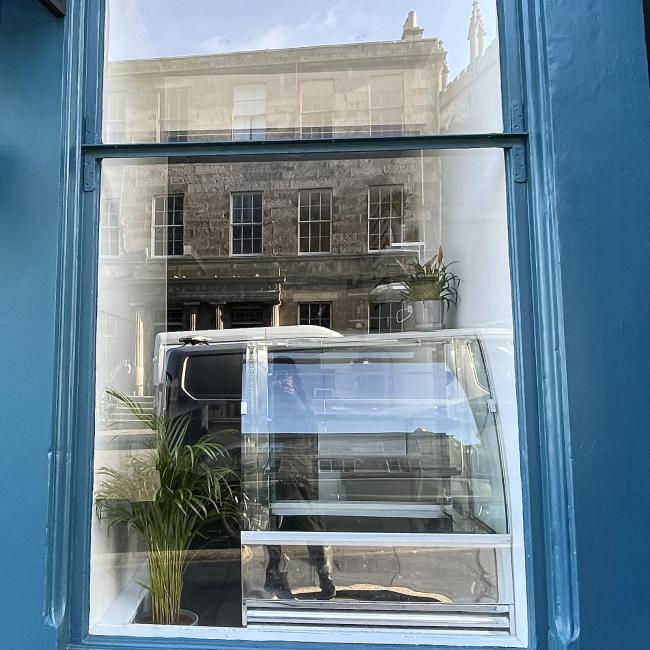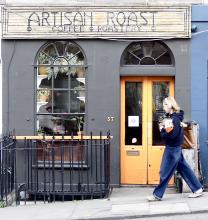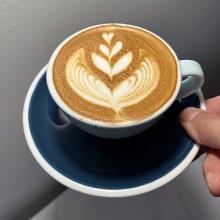
Charlie Ellis tells us how to find a decent brew and rues the loss of a promising newcomer
Speciality coffee houses have reached a degree of ubiquity in the city. It’s part of a seemingly irreversible tide of hipsterisation. Specialty coffee is now well established In Edinburgh with several top-class roasters and numerous high-calibre coffeehouses.
The likes of Artisan Roast, Williams & Johnson and Fortitude have been serving carefully crafted brews for well over a decade.
Though there may be pretentiousness surrounding specialty coffee, its rise has led to a marked improvement in what is served across Edinburgh. Some foreign visitors chunter about the food and coffee available in the city. I tell them that they are lucky they didn’t visit in the 1990s! Previously, there were only a few coffee places worth visiting. In addition, the type of coffee tended to be limited to Italian-style espresso, much of it poorly made. For those wanting an idea of how Italian espresso should be served, the excellent Gaia on Leith Walk is the place to go.
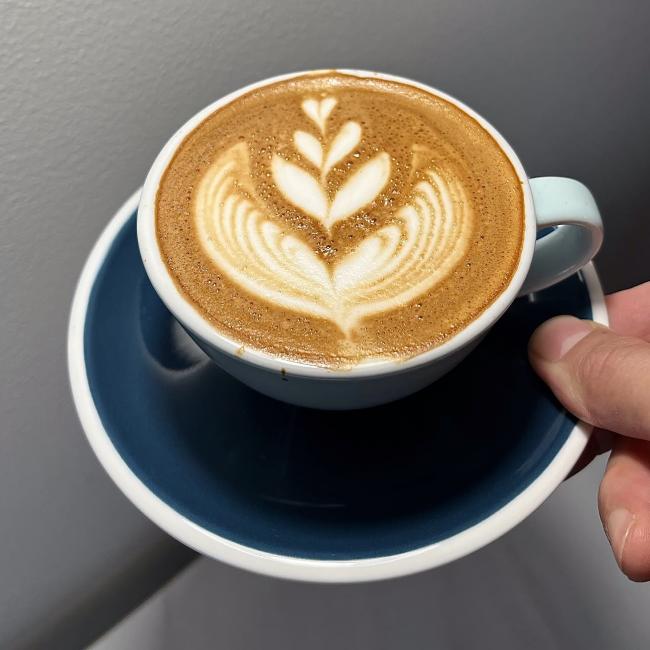
The real thing
The speed with which specialty coffee has spread has led to some dilution in quality. Notably, there are a few coffee houses which have the familiar, cliched characteristics (tiled walls, jute bags, tattooed baristas etc) and profess to be using ‘artisanal beans’. However, what they serve to customers is a pale imitation.
So, how do you know you are getting the real thing? From my experience of reviewing specialty coffee houses, there are some things to pick up on. Most of these relate to the way the coffee is made. This is the aspect which is sometimes overlooked. Having excellent beans and top-class coffee machines are necessary but not sufficient conditions. It is crucial to have skilled baristas.
A simple clue is the sound made when the barista steams milk. It is a bad sign if a loud screeching noise fills the cafe. (I recall one barista in a chain cafe noisily and inattentively steaming the milk as he checked his phone.) What is produced is fairly unpalatable. The milk should be steamed smoothly and relatively quietly. Baristas should be seen and not heard.
A related sign is the degree of precision displayed by the barista. How methodical are they? Making good coffee is not something which can be rushed. A sense that ‘This will do’ pervades too many places. Other good signs include a clear understanding of the differences between the main espresso-based drinks. Perplexed responses are not encouraging.
What made Broken Clock tick?
Spurtleshire has a number of good coffee houses, including one of the pioneers of the specialty coffee scene in Artisan Roast. A welcome newcomer last summer was Broken Clock near the top of Broughton Street. Broken Clock's first cafe/patisserie was in Glasgow, near Kelvingrove Station. I stumbled upon it there and was pleasantly surprised with the quality of the coffee and sweets.
Then Broken Clock opened in Edinburgh. After a short stay in the new St James Quarter, it moved to Broughton Street in July, using premises previously occupied by Greggs. Many saw this as an improvement. Sadly, the business here has stopped almost as quickly as it began (for personal rather than commercial reasons), but it’s worth recalling for those elements which made it such a pleasure to visit.
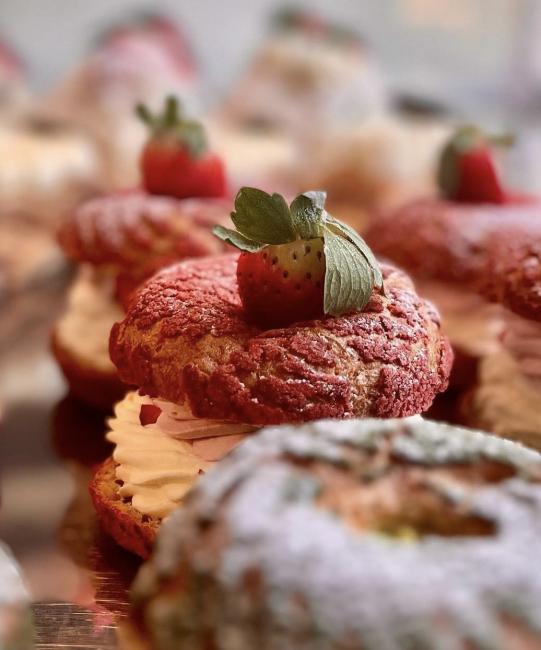
Straight away, I felt that the coffee was going to be worthwhile. A pleasant welcome from the barista was settling. Additionally, he was aware of what a cortado was, even though it wasn't listed on the menu.
The coffee was made with precision, the barista using scales to ensure the exact quantity of coffee, from which the correct ‘dose’ would be obtained. The beans at Broken Clock were their own house blend which is a 50/50 mix of Brazilian and Guatemalan. The coffee served was satisfyingly flavoursome, with mild fruity notes; nothing overpowering or sour about it.
The cafe itself was airy and calm, with no sense of being hemmed in. The decor had the elegant minimalism associated with the sector.
One very welcome aspect was that Broken Clock remained open until 5pm. So often, cafes across the city close at around 4pm. The refrain ‘Sorry, we are just closing’ is common. This can be very frustrating for those who like to have coffee in the afternoon. In the UK, coffee is still largely seen as an early-morning energiser or mid-morning pick-me-up. I sensed that there was a drift towards more ‘Continental’ opening times prior to Covid, but the twin blows of Covid and Brexit have caused a shortage of baristas in the city, meaning that cafes struggle to stay open for as long as they'd like to. A number of managers have told me they’d love to open longer but don’t have a big enough ‘team’.
The barista at Broken Clock said that afternoons were ‘often the busiest times, especially for patisserie’. The patisserie stand in the window, displaying a colourful combination of ‘traditional and experimental Patisserie‘, was indeed tempting. Not cheap, but the quality was undoubted. We savoured every mouthful.
Despite Broken Clock’s departure, this corner of Edinburgh still boasts several excellent coffee places, including Artisan Roast, Hata, as well as Fortitude and Triple-Tri Coffee (another relative newcomer) on York Place. Coffee ‘snobs’ of Spurtleshire have several options in which to sit and sip and discuss eternal questions such as When will the tram network be finished? and What’s the difference between a cortado and piccolo?
